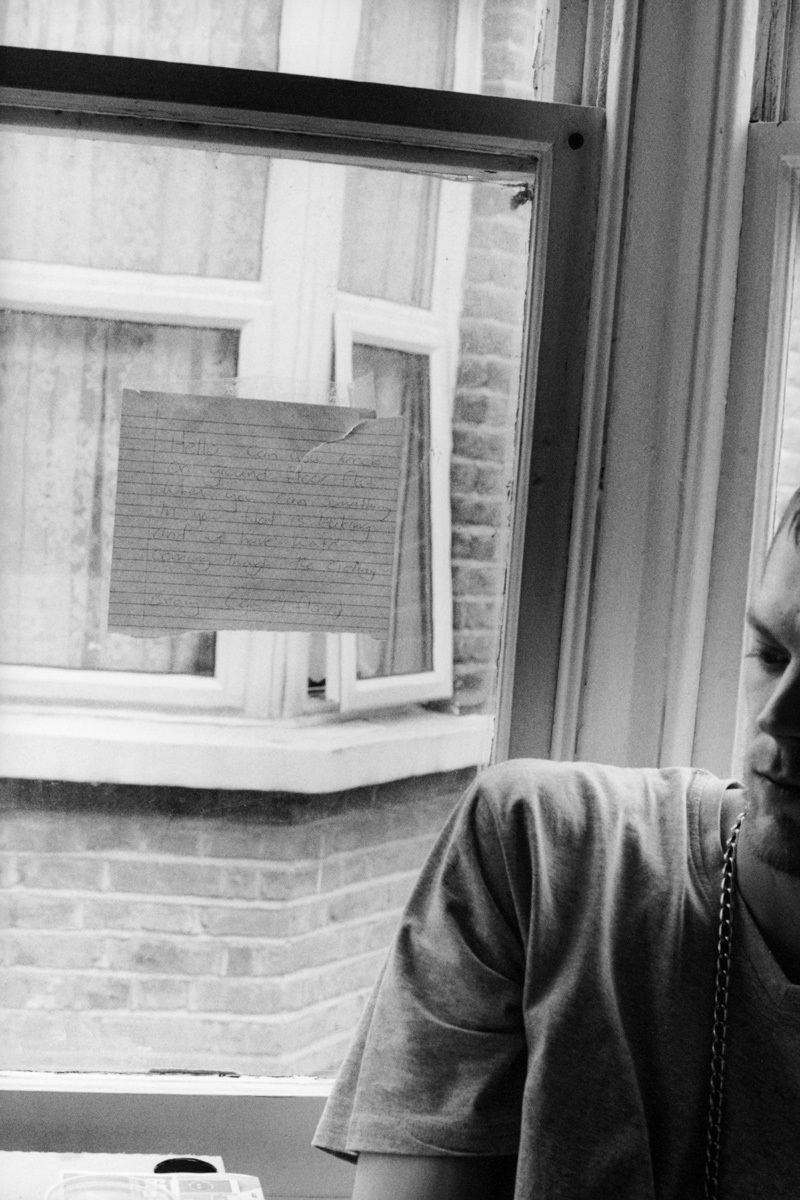“All the great designers proposed functions: that’s designing in a really pure form,” says Per Gotesson, referring to Coco Chanel. The garments he created during his MA at the Royal College of Art aimed to subvert a handful of ‘common sense’ rules that are imposed on citizens; where the challenge was to rethink what ‘functional’ clothes could be beyond their typical usefulness. “It is about the poetics and the politics of the garment. This can be quite literal, like with the bottle pockets I worked on, which serve the purpose of carrying a bottle of wine on the bus. The driver can’t say that you can’t take that bottle onto the bus, because that is how the garment looks. But that pocket represents a bigger comment about the ‘not so free’ world we live in.” His post-graduate collection can be seen as a commentary on different methods of state control that often become invisible after encountering them so often – mind numbed, we tend to forget about the CCTV system (remember: 1 camera for every 14 people in London), or the manipulative ways in which consumerism is (gently) forced upon us. As young creatives existing within the cultural environment of a metropole, becoming aware and seeing things as they are is crucial in order to question ‘the system’ – and perhaps, in whatever way possible, contribute to a small change.
It goes without saying that Per’s clothes are products of society and inevitably reflect the strange world that we live in. “It is almost as if a designer would say that their work is not political. Everything is. If you are not interested in these aspects, you are just being lazy,” he probes. After all, the private is always informed by the public, and therefore the personal is the political.
All this considered, it’s not surprising how Per repeats on several occasions that he is not into designs which completely alienate the customer. “I like normal things,” he says, “because they are more valid socially than wearing abstract sculptures.” No grand structures that transform a dress into something impractical? No museum-worthy jeans? Per is adamant that fashion should neither be seen as art nor compared to it: “Fashion is fashion and it’s valid enough.” This down to earth approach may simply have come from his Swedish roots, or his experience working closely with Ann-Sofie Back at Cheap Monday. Along with Martin Margiela, he admires her for seeing problems and having questions that are explored within design – essentially, for ‘keeping it real’. His self-proclaimed aesthetic lies close to that, too, as he describes it as “casual, sensual and a bit fucked up.”
Leaving the educational institutions behind for good, Per excitedly looks ahead to the future. “I always feel a bit dirty when I feel nostalgic, and instead of thinking about what is coming next, I am always thinking about now. I don’t think there’s a better era than the current one.”
Read: Matty Bovan on the emotion of his work.
Credits
Words Jorinde Croese and Hannah Beach
Photography James Robjant
